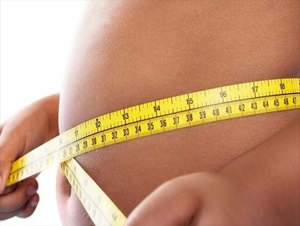
What is Dyslipidemia
Dyslipidemia is a condition resulting in imbalance in the circulating lipids(i.e. fasts) in the blood. It may be marked by increase in levels of total cholesterol, LDL or 'bad' cholesterol, triglycerides an decrease in HDL or 'good' cholesterol..
Correlation between Diabetes & Dyslipidemia
Type2 diabetes is commonly associated with dyslipidemia and high blood pressure which increases the risk of heart disease. High blood sugar levels over time can increasse deposites of fatty materials on inner sides of the blood vessels. Thease deposites may effect the blood flow resulting in clogging and hardening of vessels.
Future risks associated with uncontrolled Diabetes and DyslipidemiaDiabetes with dyslipidemia
are twice likely to develop the above complications in long run. In order to avoid these complications it is important to maintain blood sugar and lipid levels to normal. Weight loss helps in lowering blood pressure, total cholesterol, triglycerides and raising HDL cholesterol, and improving blood sugar control.
Dietary Guidelines for Diabetics with Dyslipidemia
How does diet works in management of Diabetes & Dyslipidemia
Proper nutritionally balanced diabetic diet along with exercise and medication (if required) forms a critical aspect in the treatment of diabetes and dyslipidemia. Diet plays an important role in management of insulin Resistance wich is one of the factors leading to deranged lipid levels.
The main goal of dietary treatment is to reduce elevated total cholesterol, improve the levels of HDL or 'good' cholesterol, enchance insulin activity and assist in weight loss.
Dietary RecommendationEnergy: Being overweight and diabetic further increases the risk for heart diseases. Hence it is beneficial to reduce weight by overweight diabetics and maintain it to avoid future complications.
Medication
In general, a reduction in total daily calorie intake by 400-500 Kcals is advaised for healthy weight reduction. (Daily caloric requirement differs from individual to individual and depends upon ideal body weight and activity level).
Carbohydrates: A low to moderate carbohydrate (CHO) diet (around 50-60%) is effective in correcting deranged lipid levels and insulin resistance.
Include: More of complex CHO (Whole grain flours, vegetables etc.).
Avoid: Simple CHO such as sugars, refined flours, potatoes etc.
Proteins: 20-25% of calories should come from proteins.
Anilmal Sources: Cow's or skim milk, paneer, curd, egg whites, lean chicken and fish
Plant Sources: Dals, legumes, sprouts etc.
Fats: A low fat diet (around 10-20%), especially low in saturated fats, PUFA and cholesterol is suggested.
Include oils rich in MUFA and Omega 3 Fatty Acids: Olive oil, groundnut oil, flax seeds oil etc.
Restrict intake of oils rich in PUFA: Safflower oil, sunflower oil, canola oil etc.
Strictly avoid SFA rich foods: Butter, ghee, margarine, cheese, cream, vanaspati, organ meats, coconuts etc.
Fiber: Fiber rich diet, 20-30 gms of fiber/day is suggested. Fiber helps in weight loss and lowering total cholesterol levels. Whole grains, oats, sprouts, whole vegetables and fruits etc. Should be incorporated.
Vitamins and Minerals: 6-8 serving of vegetables and fruits, especially red orange-yellow coloured which are rich in antioxidants, should be consumed daily. Antioxidants protect body by reducing clot fornation in blood vessels.
Fluids: 10-12 Glasses of water should be consumed daily.




